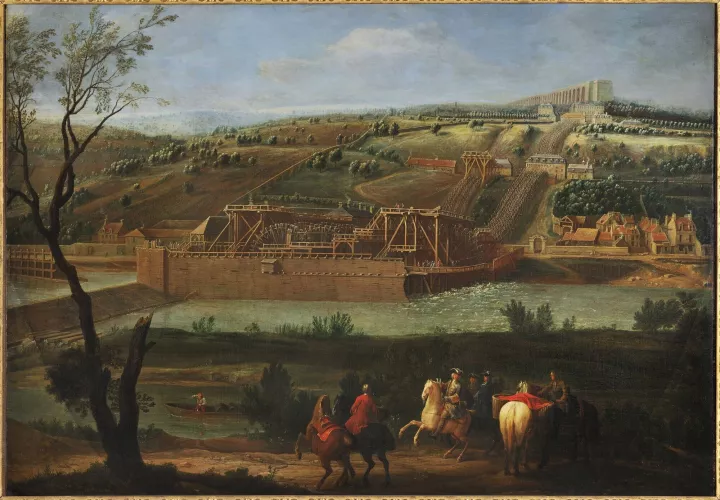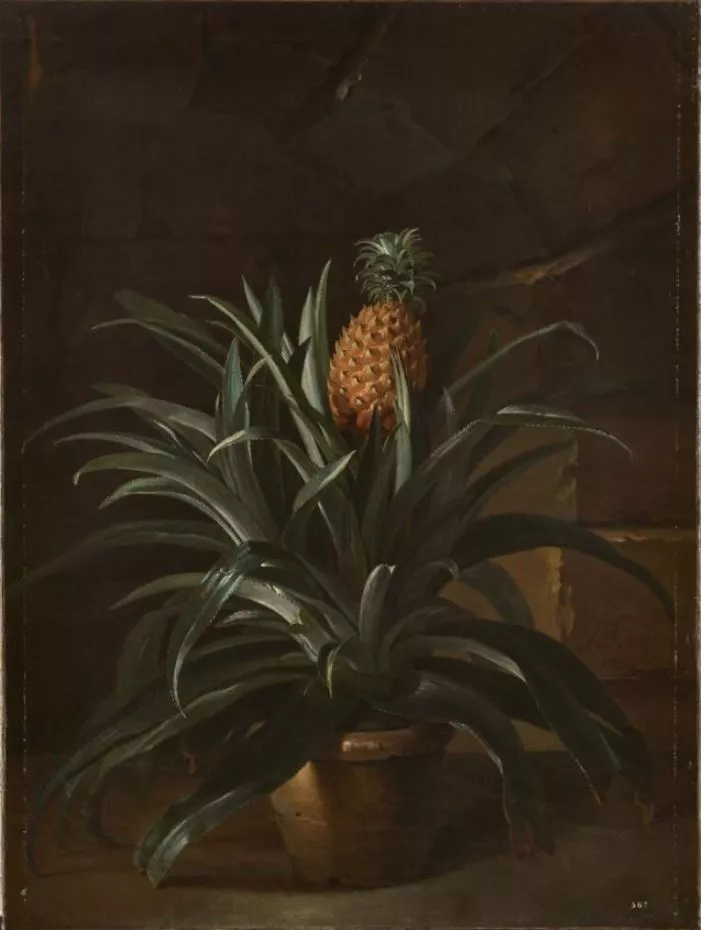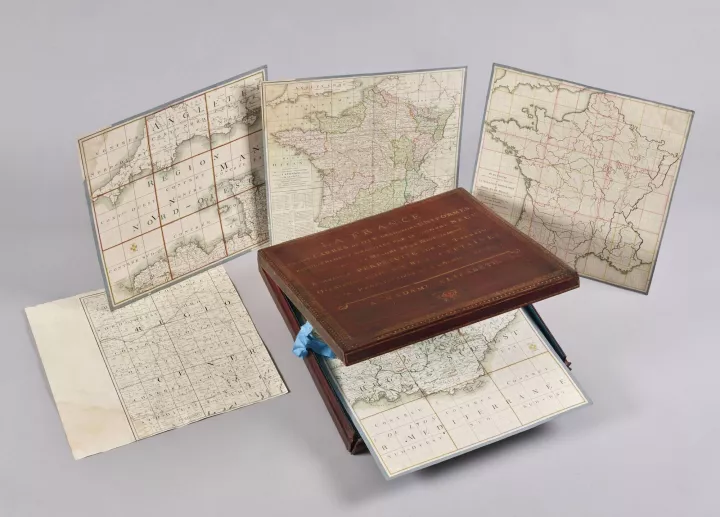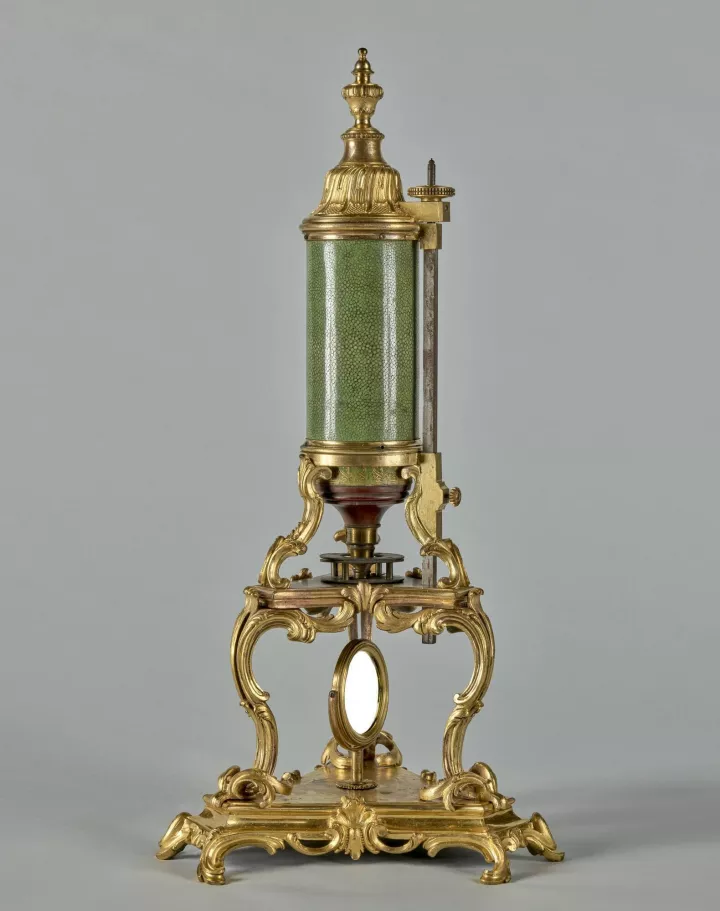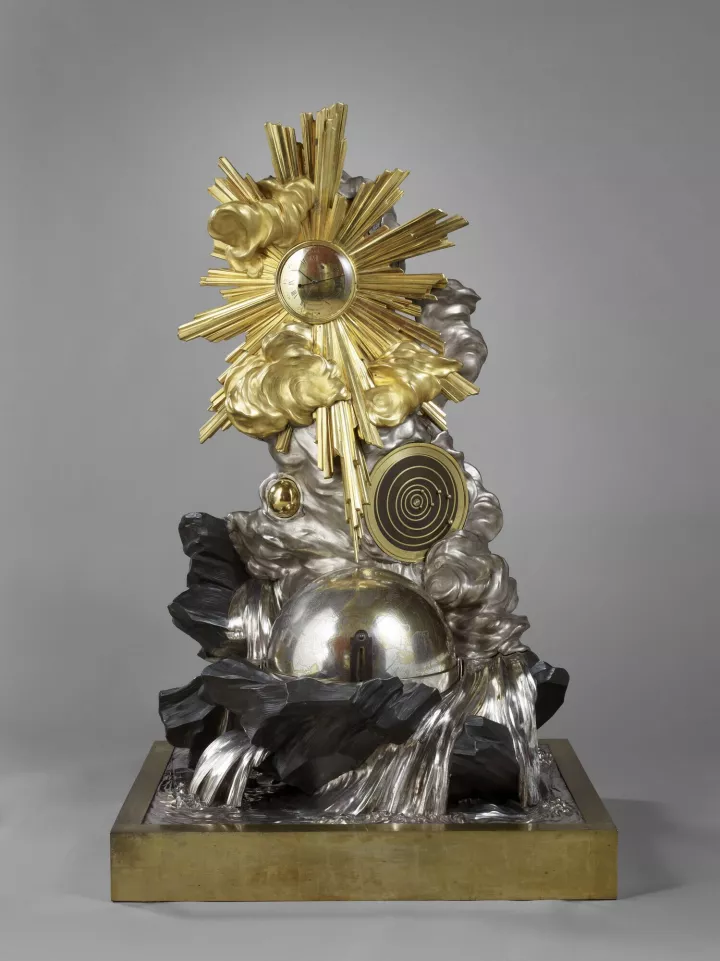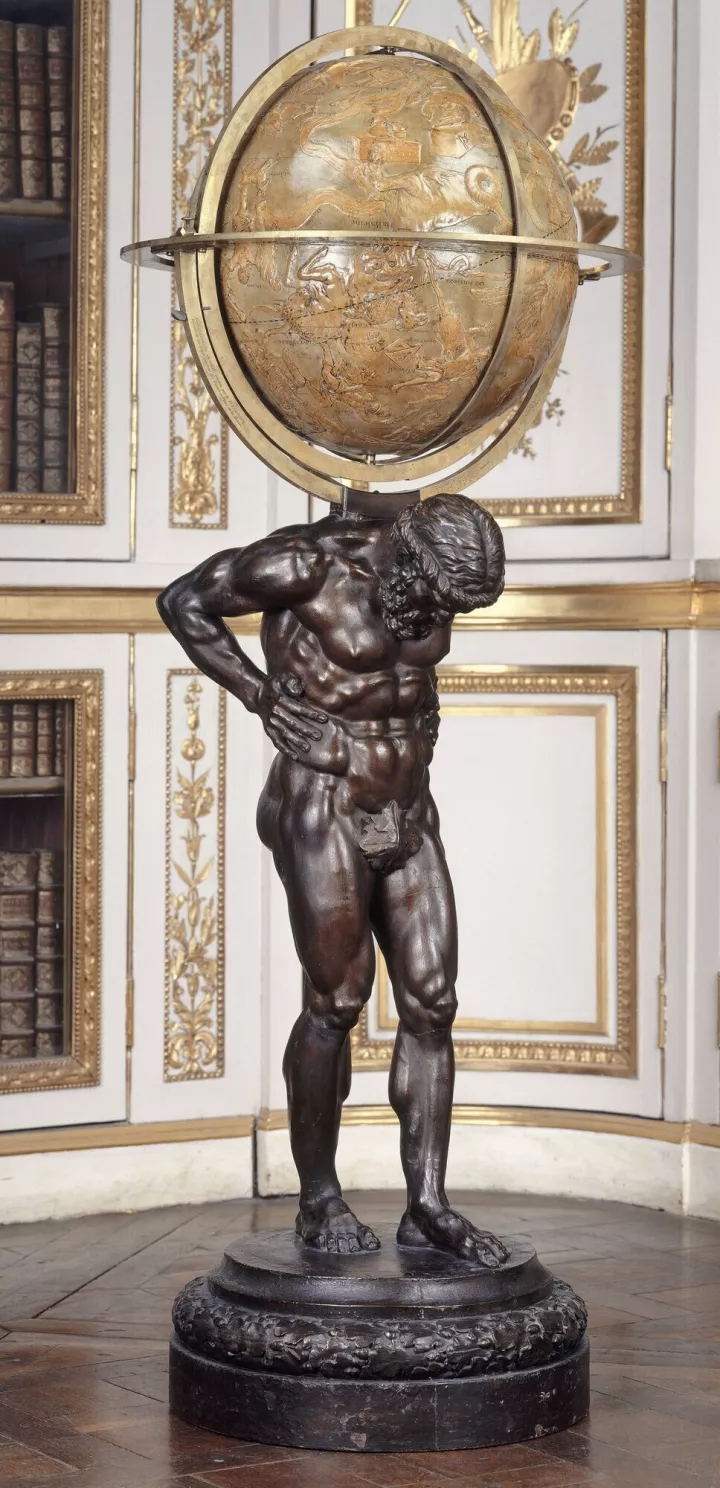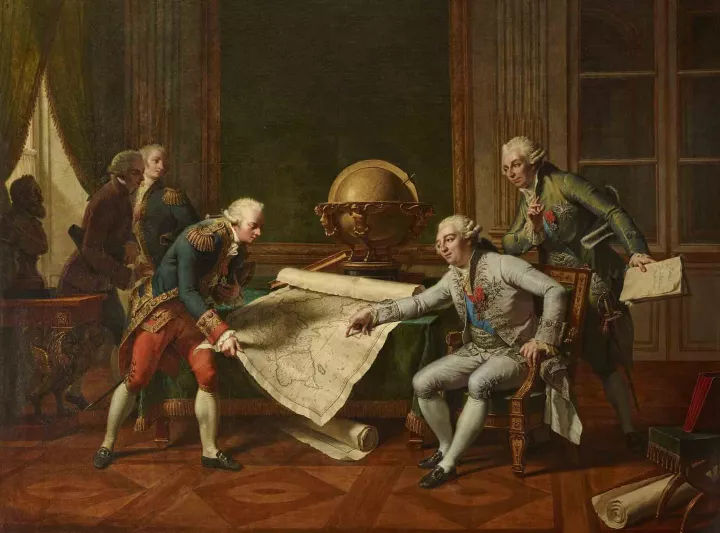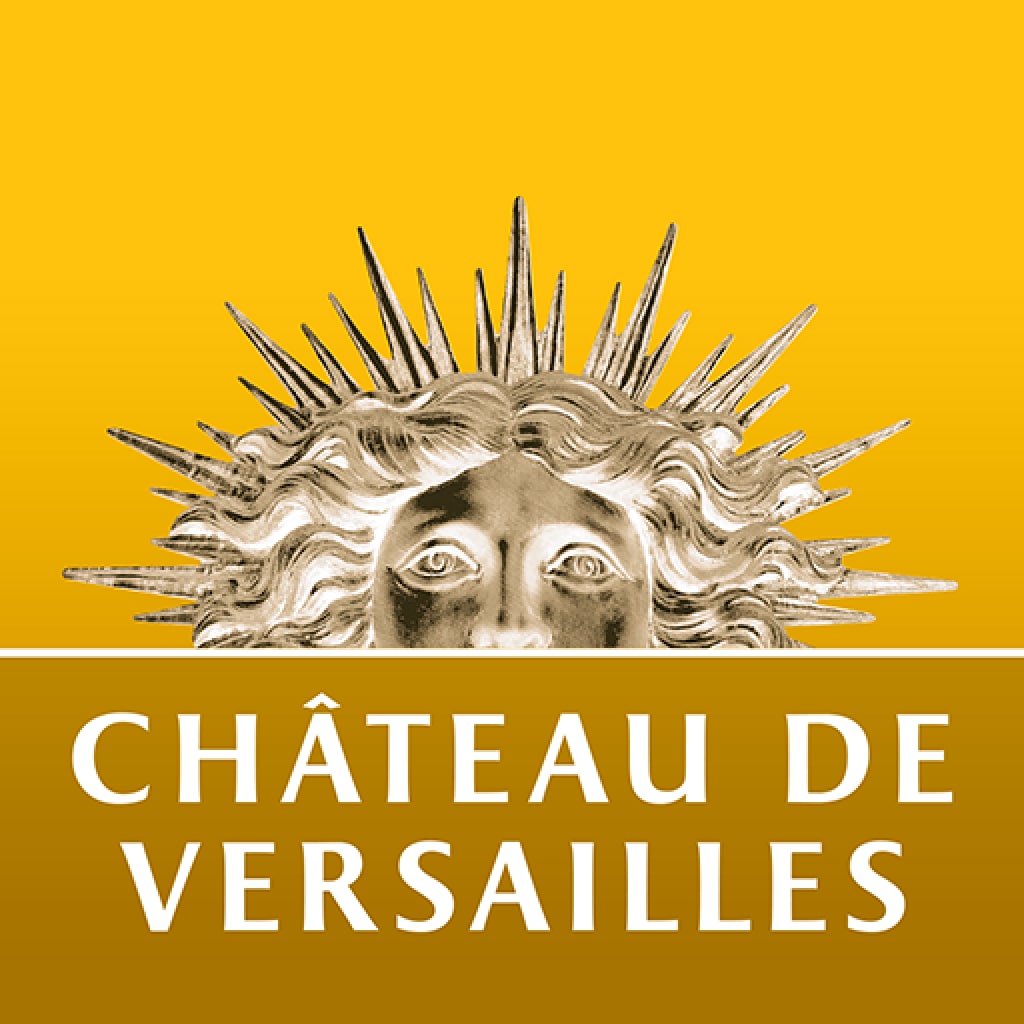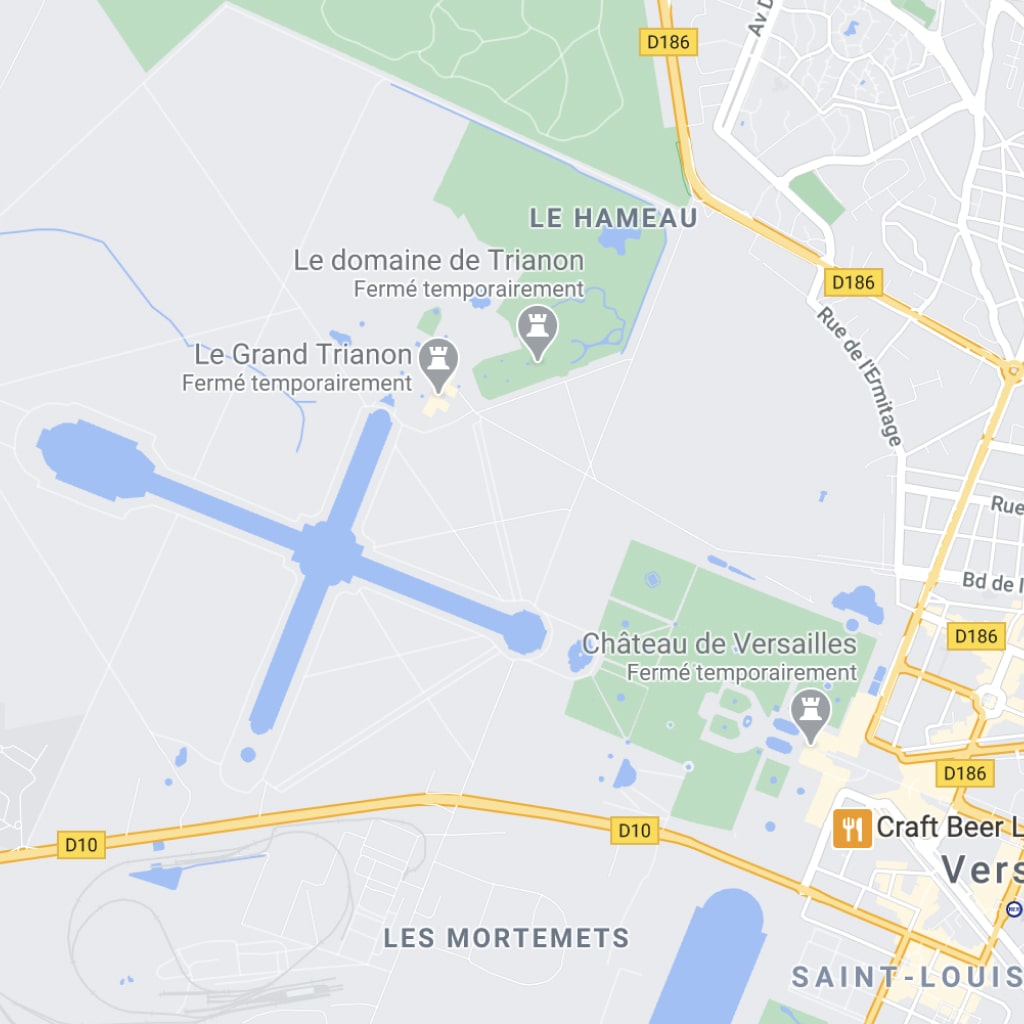From 12 December 2024 to 21 April 2025, the Science Museum in London was hosting the exhibition Versailles: Science and Splendour, which has been developed with scientific support from the Palace of Versailles. Over one hundred exhibits, some forty of which are from the collections at Versailles, will be assembled to provide an insight into the major role played by science at the court of Versailles in the 17th and 18th centuries.

Off-site exhibition Versailles: Science and Splendour
THE EXHIBITION
For several months, a lesser-known aspect of Versailles have been brought back to life at the heart of the Science Museum in London, showcasing a world of science and knowledge totally at odds with the traditional image of the French court under the Ancien Régime as a place of superficiality and frivolity. Versailles: Science and Splendour revisited, through some one hundred exhibits, the exhibition Sciences and Curiosities of Versailles, which was held in 2010 at the Palace of Versailles, and curated by Béatrix Saule, former director of the National Museum of the Palaces of Versailles and Trianon.
Science as an instrument of power
In the reign of Louis XIV, the development of scientific knowledge was considered to be a tool for extending the prestige and influence of the sovereign and kingdom. The Sun King and his successors championed scientific research (notably through the creation of the Academy of Sciences by Louis XIV in 1666), and Louis XV and Louis XVI even developed a personal interest in the sciences, which they pursued in their private workrooms.
The exhibition revealed how Versailles, which was already a beacon of scientific experimentation by virtue of its construction (plotting out the estate and its perspectives, installing a hydraulic system on an unprecedented scale for the era), became a focal point for scientific research. This included projects for the king’s enjoyment (in the fields of zoology and botany, for example), but also major demonstrations which made a profound impression on the court, such as the experiment featuring a burning mirror witnessed by Louis XIV in 1669, and the first hot-air balloon flight in the Palace courtyard in 1783.
Key players in the scientific revolution
The exhibition also looked back at major scientific advances in the 17th and 18th centuries through the men and women who pioneered progress in their own disciplines. In the field of medicine, the public met Madame du Coudray, one of the first midwives to teach the mechanics of giving birth to her fellow practitioners in order to reduce infant mortality. Visitors also learnt about significant figures at the Palace of Versailles and in the wider kingdom, such as the French navigator and explorer La Pérouse who had a profond impact on cartography with the expedition which he led in 1785 on the orders of Louis XVI, and also Abbé Nollet, a physicist and tutor to the Royal Children, who delighted the court with his experiments with electricity.
Innovative masterpieces
Versailles: Science and Splendour offered a unique opportunity to discover over one hundred works – paintings, objets d’art, works on paper and also magnificent scientific objects and instruments – some forty of which are from the collections at Versailles. Many artefacts have never been exhibited in the United Kingdom before, including Jean-Baptiste Oudry’s Pineapple in a Pot, and Louis XV’s rhinoceros which was on loan from the French National Natural History Museum in Paris. Visitors were able to admire masterpieces from Versailles, such as Louis XV’s optical microscope created by Claude-Siméon Passemant, the master craftsman who also produced the Clock of the “Creation of the World”, the map of the moon drawn by the astronomer Cassini, and Madame du Coudray’s midwifery teaching mannequin.
Some works of art
Exhibition curators
Anna Ferrari, Lead Curator.
Expert advisor, the Palace of Versailles.
PRACTICAL INFORMATION
Exhibition dates: 12 December 2024 to 21 April 2025 at the Science Museum, London, UK
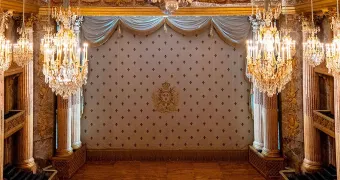
Show
The 2025-2026 musical season
The Palace of Versailles is hosting numerous operas, concerts, gala evenings and ballets in some of its exceptional spaces, including the Royal Opera and the Royal Chapel. Check out the programme for the 2025–2026 music season at Versailles.
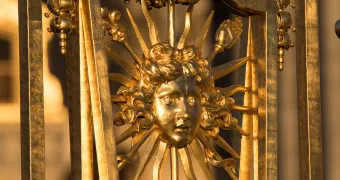
Plan my visit
guided tours
During guided tours, a speaker from the Palace invites you into lesser known locations otherwise closed to the visitors. You can also book online tours to discover the backstage of the Castle from your home!
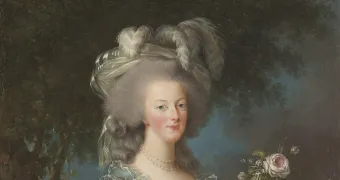
Virtual exhibition
Virtual exhibitions
Let's plunge into interactive frescoes and discovers the paintings, sculptures and engravings in a new light.
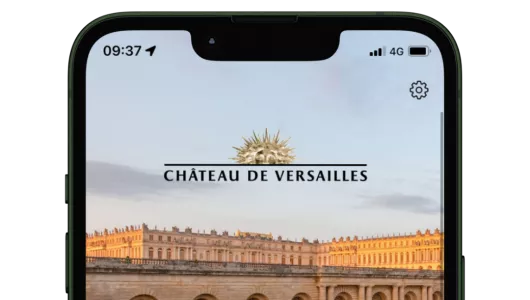
The official Palace of Versailles app
The free application of the Palace offers audio tours to accompany your visit to the Estate (Palace, Gardens, Trianon Estate, etc.) as well as an interactive map.
More information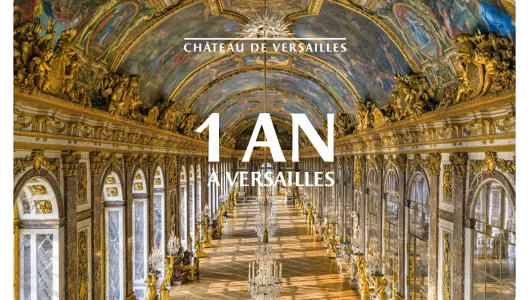
Are you a regular visitor?
The best of Versailles for subscribers! For a whole year, benefit from numerous advantages thanks to the SOLO or DUO cards, and unlimited ticket access from only 65€.
Choose your subscription


